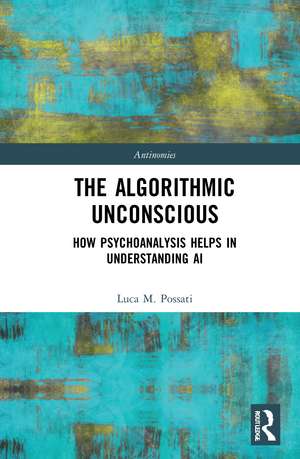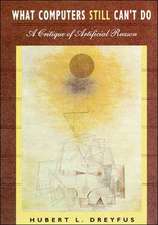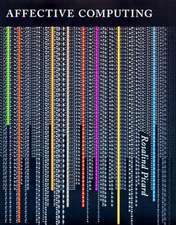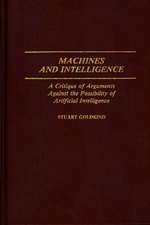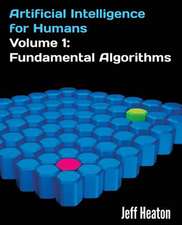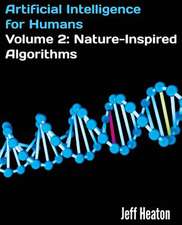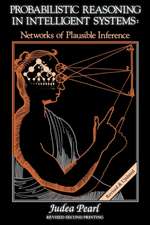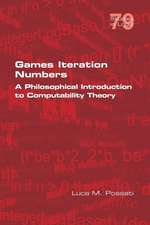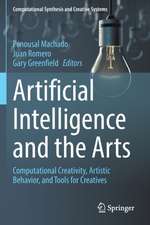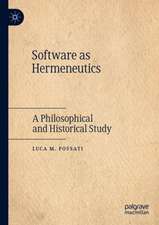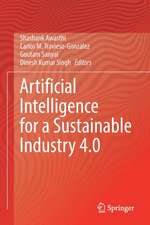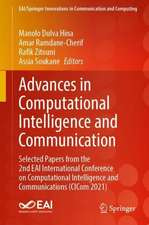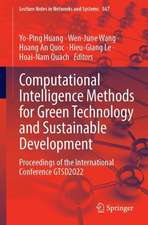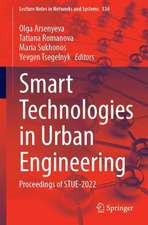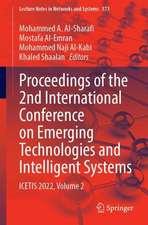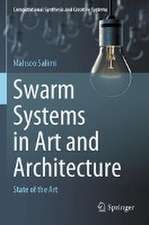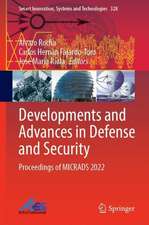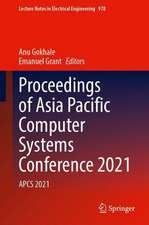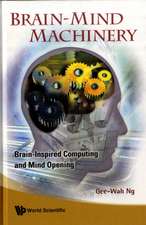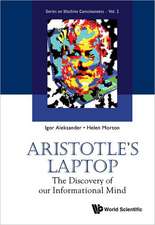The Algorithmic Unconscious: How Psychoanalysis Helps in Understanding AI: Antinomies
Autor Luca Possatien Limba Engleză Hardback – 25 feb 2021
The book is divided into four parts. The first part (Chapter 1) analyzes the concept of "machine behavior." The second part (Chapter 2) develops a reinterpretation of some fundamental Freudian and Lacanian concepts through Bruno Latour’s actor-network theory. The third part (Chapters 3 and 4) focuses on the nature and structure of the algorithmic unconscious. The author claims that the unconscious roots of AI lie in a form of projective identification, i.e., an emotional and imaginative exchange between humans and machines. In the fourth part of the book (Chapter 5), the author advances the thesis that neuropsychoanalysis and the affective neurosciences can provide a new paradigm for research on artificial general intelligence.
The Algorithmic Unconscious explores a completely new approach to AI, which can also be defined as a form of "therapy." Analyzing the projective identification processes that take place in groups of professional programmers and designers, as well as the "hidden" features of AI (errors, noise information, biases, etc.), represents an important tool to enable a healthy and positive relationship between humans and AI. Psychoanalysis is used as a critical space for reflection, innovation, and progress.
| Toate formatele și edițiile | Preț | Express |
|---|---|---|
| Paperback (1) | 327.59 lei 43-57 zile | |
| Taylor & Francis – 29 aug 2022 | 327.59 lei 43-57 zile | |
| Hardback (1) | 1043.32 lei 43-57 zile | |
| Taylor & Francis – 25 feb 2021 | 1043.32 lei 43-57 zile |
Preț: 1043.32 lei
Preț vechi: 1304.15 lei
-20% Nou
Puncte Express: 1565
Preț estimativ în valută:
199.70€ • 216.99$ • 167.86£
199.70€ • 216.99$ • 167.86£
Carte tipărită la comandă
Livrare economică 21 aprilie-05 mai
Preluare comenzi: 021 569.72.76
Specificații
ISBN-13: 9780367694043
ISBN-10: 0367694042
Pagini: 156
Ilustrații: 17 Line drawings, black and white; 2 Tables, black and white; 17 Illustrations, black and white
Dimensiuni: 156 x 234 x 11 mm
Greutate: 0.4 kg
Ediția:1
Editura: Taylor & Francis
Colecția Routledge
Seria Antinomies
Locul publicării:Oxford, United Kingdom
ISBN-10: 0367694042
Pagini: 156
Ilustrații: 17 Line drawings, black and white; 2 Tables, black and white; 17 Illustrations, black and white
Dimensiuni: 156 x 234 x 11 mm
Greutate: 0.4 kg
Ediția:1
Editura: Taylor & Francis
Colecția Routledge
Seria Antinomies
Locul publicării:Oxford, United Kingdom
Public țintă
PostgraduateCuprins
Introduction
1. Why an Algorithmic Unconscious for AI?
2. The Unconscious and Technology
3. The Difficulty of Being AI
4. Errors, Noise, Bias, and Sleeping
5. A Freudian Computer: Neuropsychoanalysis and Affective Neuroscience as a Framework to Understand Artificial General Intelligence
6. Conclusions: Toward an Ethnographic and Psychoanalytic Study of AI
2. The Unconscious and Technology
3. The Difficulty of Being AI
4. Errors, Noise, Bias, and Sleeping
5. A Freudian Computer: Neuropsychoanalysis and Affective Neuroscience as a Framework to Understand Artificial General Intelligence
6. Conclusions: Toward an Ethnographic and Psychoanalytic Study of AI
Notă biografică
Luca M. Possati is a researcher in philosophy at the University of Porto, Portugal. His fields of investigation are philosophy of technology and artificial intelligence. He is the author of many studies in phenomenology and the history of philosophy.
Recenzii
"In this illuminating book, Luca M. Possati explores the unconscious dimension of Artificial Intelligence. Its main thesis is that in the age of big data and self-learning neural networks ‘machine behavior’ has become dark and impenetrable and is in need for interpretation. Combining Lacanian psychoanalysis and Latour’s actor-network theory the author offers an original and timely analysis of how we project our deepest desires in AI technologies and pleas for a new ‘subcortical AI’."
- Jos de Mul, Erasmus School of Philosophy, Erasmus University Rotterdam, The Netherlands
- Jos de Mul, Erasmus School of Philosophy, Erasmus University Rotterdam, The Netherlands
Descriere
This book applies the concepts and methods of psychoanalysis to the study of artificial intelligence (AI) and human–AI interaction. It develops a new, more fruitful approach for applying psychoanalysis to AI and machine behavior.
